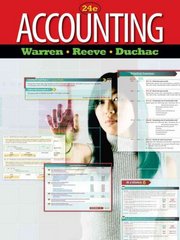In papermaking operations for companies such as International Paper Company, Wet pulp is fed into paper machines,
Question:
In this industry, it is typical to charge the papermaking operation with the cost of direct materials, which is a mixture of virgin materials and broke. Broke has a much lower cost than does virgin pulp. Therefore, the more broke in the mixture, the lower the average cost of direct materials to the department. Papermaking managers will frequently comment on the importance of broke for keeping their direct materials costs down.
a. How do you react to this accounting procedure?
b. What “hidden costs” are not considered when accounting for broke as described above?
Fantastic news! We've Found the answer you've been seeking!
Step by Step Answer:
Related Book For 

Question Posted:





